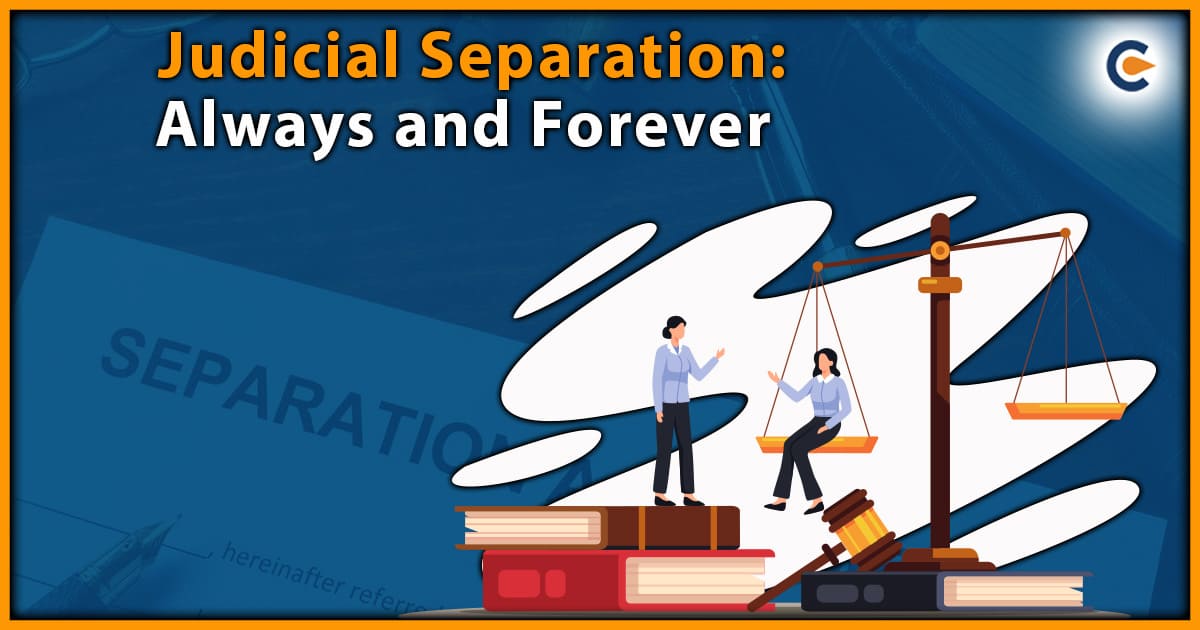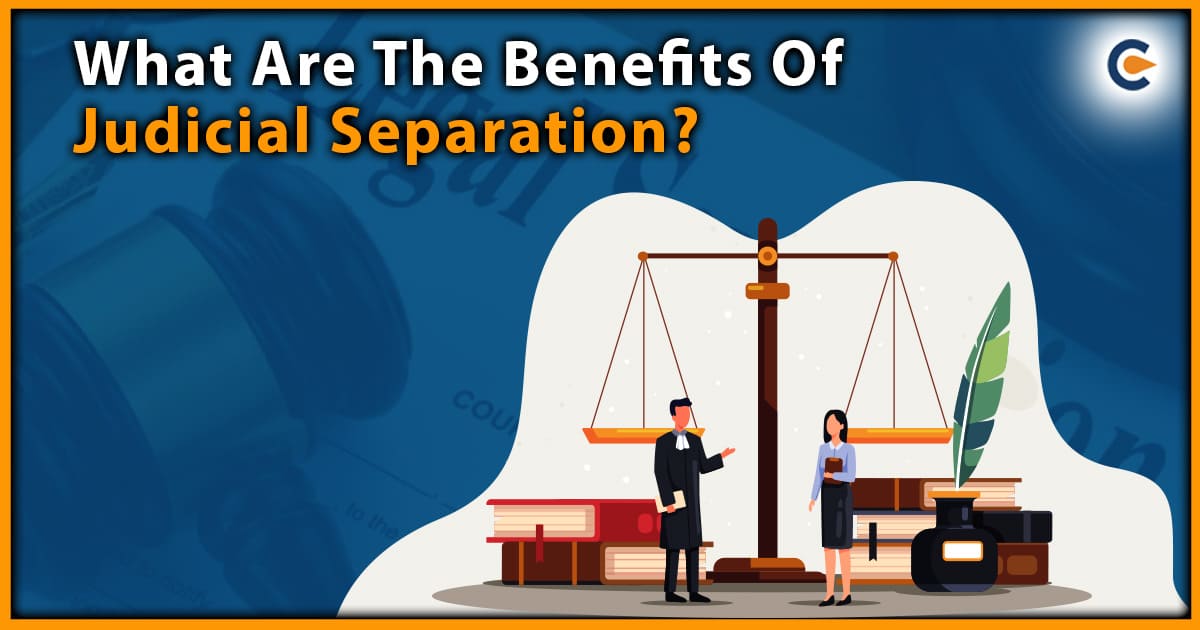When two people decide to formally commit to spend the rest of their lives together by getting married, they frequently see a future filled with happiness, a love that endures the test of time, and a unity of contentment with their partners. But history has demonstrated that this is not typically the case. While some marriages do last until one or both partners pass away, others fail miserably and result in divorce, while still others find novel ways to keep their union together while securing a court order allowing them to live apart. This way is known as judicial separation which only relieves the parties from the obligation to cohabit with each other without dissolving the marital ties forever.
Judicial Separation
Judicial separation is a legal process that allows married couples to live apart without officially ending their marriage. It results in the physical separation of the husband and wife of a legal marriage by releasing them from the requirement to live together. This option is available for couples who are experiencing difficulties in their marriage but do not want to go through a divorce or dissolution of marriage. Judicial separation provides a formal and legal agreement that allows the couple to live separately while still being legally married.
Unlike a divorce, which ends the legal union between two people, a judicial separation does not terminate the marriage. The status, obligations, and rights of the parties to the marriage remain unaffected by the decree of judicial separation. The couple is still considered to be married and is bound by the same legal obligations, such as the duty of support, which they had before the separation. This indicates that the decree has no bearing on the marriage, that it is still valid and legally binding, and that neither partner may remarry while the decree is in effect. However, a judicial separation does allow for the division of property, custody of children, and spousal support.
Once issued, a judicial separation decree may be revoked by either the parties on their own motion to the court or by the court itself. For the former, the parties will inform the court that their cohabitation has willingly resumed. The decree will be discharged whenever both parties have agreed and the judge is satisfied. The court may discharge the decree in the case of the latter alternative if it receives notification that the parties have voluntarily resumed living together.
Judicial Separation as An Alternative to Divorce
When serious marital issues arise in marriages and have the couples contemplating whether or not to put an end to the relationship, there are many reasons why judicial separation may appear as an option for the parties. These reasons may span strong moral objections, cultural reasons, or religious beliefs. One of the reasons why a person may opt for judicial separation may be religious or cultural, such as where cultural practices or religious doctrines forbid couples from putting an end to their marriage. Secondly, a party to marriage might want a judicial separation out of spite. Lastly is where the parties seek to reconcile the issues that have arisen with the hope that they would continue the marriage.
Thus, judicial separation is a viable option for couples who want to maintain the legal benefits of marriage while living apart. For instance, some couples may choose this option to maintain their health insurance, social security benefits, or military benefits. It can also provide a time for couples to reflect on their marriage and decide if they want to reconcile or eventually pursue a divorce.
However, it is essential to understand that judicial separation is not always a permanent solution. While it provides a legally binding agreement, the couple can still choose to reconcile and resume their married life at any time. This option is particularly useful for couples who need a period of time to work through their issues before deciding to end their marriage. However, if they decide to pursue a divorce in the future, they would need to apply for one separately.
Effects Of Judicial Separation
Once a decree of judicial separation is granted, the legal effect is that the duty to cohabit and live together automatically ceases between the parties. Other legal effects of the decree are as follows:
- Legal status: A judicial separation does not legally end the marriage. However, it does provide a legal status that allows the couple to live apart while remaining married. This can provide legal benefits such as tax breaks[1], health insurance, and social security benefits.
- Marital obligations: While a judicial separation allows the couple to live apart, they are still bound by certain marital obligations such as fidelity, support, and mutual respect. This means that both parties are still required to fulfill their obligations to the marriage, including the duty of support.
- No remarriage: A judicial separation does not allow either party to remarry. If the couple decides to end their marriage in the future, they would need to apply for a divorce.
- Inheritance rights: Where a party to the marriage dies intestate while the decree is in operation, any property shall devolve as if that party had survived the other party to the marriage.
- Division of property: During a judicial separation, the court can order the division of property between the spouses. This can include the division of real estate, personal property, and any other assets or debts acquired during the marriage.
Conclusion
In conclusion, judicial separation can be a useful legal option for couples who want to live apart but remain married. It provides a formal agreement that separates the couple’s financial and legal responsibilities while allowing them to maintain some of the legal benefits of marriage. However, it is not always a permanent solution, and couples should carefully consider the limitations and potential consequences of this option before proceeding. If the court feels that a marriage has irretrievably broken down, then it should be allowed to ‘die’ and then divorce is a viable option for the parties.
Read our Article:Is Judicial Separation The Same As Divorce?











